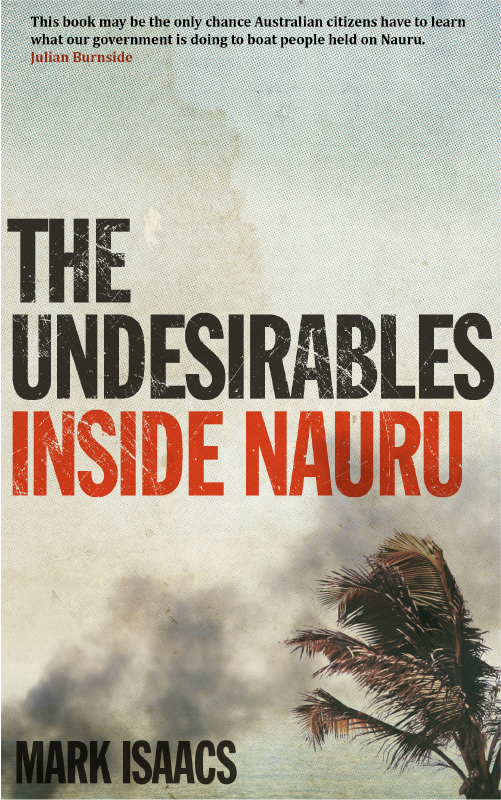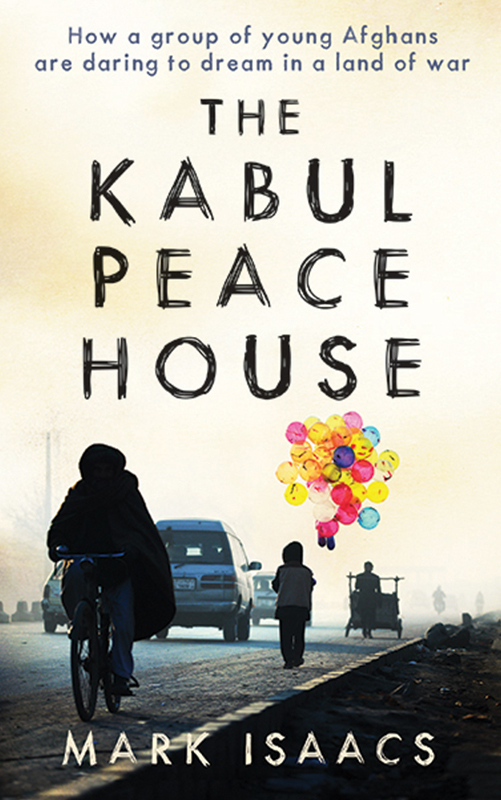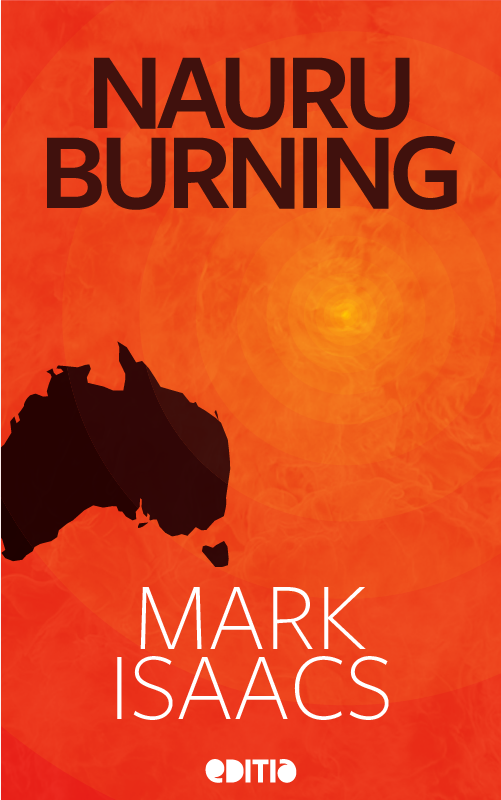
by Mark Isaacs
In August 2012, the Australia Government reintroduced the notorious Pacific Solution; a policy of incarcerating people who attempt to seek refuge in Australia by boat in Pacific Island prisons.
Two weeks later, I was hired by the Salvation Army to perform humanitarian work in the horrific Nauru detention centre. What I saw there moved me to speak out, despite the threat of legal action for disclosing “confidential information”.
The Undesirables: Inside Nauru is an exposé of what really goes inside an offshore detention centre; detailing daily life in the prison and the stories of the men held there; the self-harm, suicide attempts, and riots; the rare moments of joy and the moments of deep despair.
This book is a window into the dark and mysterious world of offshore processing, a world purposefully obscured from the public eye.
”They feared that they would die in Nauru, that they would be forgotten; that they would become non-people.
Mark IsaacsThe Undesirables
Stories from
Inside the Nauru Detention Centre
This account details life inside the Nauru detention centre: the appalling living conditions where men were housed in tents and slept on stretcher beds; the illnesses that spread in cramped living quarters and the poor medical services which offered Panadol for all ailments. It explores the relationships between the detained men and the Australian staff, and includes revelations of abuse and negligence. Most frightening of all are the accounts of self-harm, mental illness and violence which escalate dramatically throughout the book.
”The camp was built around destroying men, breaking them down so far that they would take their own lives. Grind them into the dust and force their hands to pull the nooses and knives on themselves.
Mark IsaacsThe Undesirables
Stories of
The Detained Men
Within the Nauru detention centre, there were men of different nationalities, ethnicities, language groups and religious beliefs. All of them were confined within the claustrophobic atmosphere of the prison.
Learn their stories of why they tried to come to Australia and about the families and countries they left behind. Read about their hopes and dreams that were overshadowed by the hopelessness of life on Nauru. And walk with them through their suffering as they tried to cope with the pressure of imprisonment without sentence.
”I am willing to die for all these men to shut this place down.
PezThe Undesirables
The Island of Nauru
Nauru is an island of 10,000 people. It takes 30 minutes to drive around the country. There is one main store; a two-storey warehouse of odds and ends.
The island is rimmed with idyllic beaches and palm trees. But the poverty is at times startling: falling apart houses with broken windows and doors. Abandoned infrastructure and barely functioning refineries are a reminder of a more prosperous nation which used to profit from the phosphate mining industry.
In the centre of the island, excavated mine sites create pinnacles of rock. Here the wind dies down and the heat and humidity become intense. This was where they housed the Nauru detention centre.
Learn about this strange nation and how it was affected, for good or for worse, by Australia’s offshore detention program.
”This was the No Advantage policy. Take them to a distant island, lock them away, punish them, forget about them. Criminals were given a sentence to serve; these men were not even given that.
Mark IsaacsThe Undesirables
Explosive whistleblower account
In order to publish The Undesirables and speak out publicly against Australia’s offshore detention policy, I had to breach strict confidentiality agreements designed to silence workers and restrict the public from knowing what was really happening on Nauru. I risked the legal repercussions because I felt compelled to shed light on the government-financed suffering and abuse. At that time, the government had successfully repressed most information from leaving the island. I wanted people to really know what was happening to the men detained on Nauru.
”This is a stand, to tell the truth about what is happening, no matter how the government will react.
Mark IsaacsThe Undesirables

